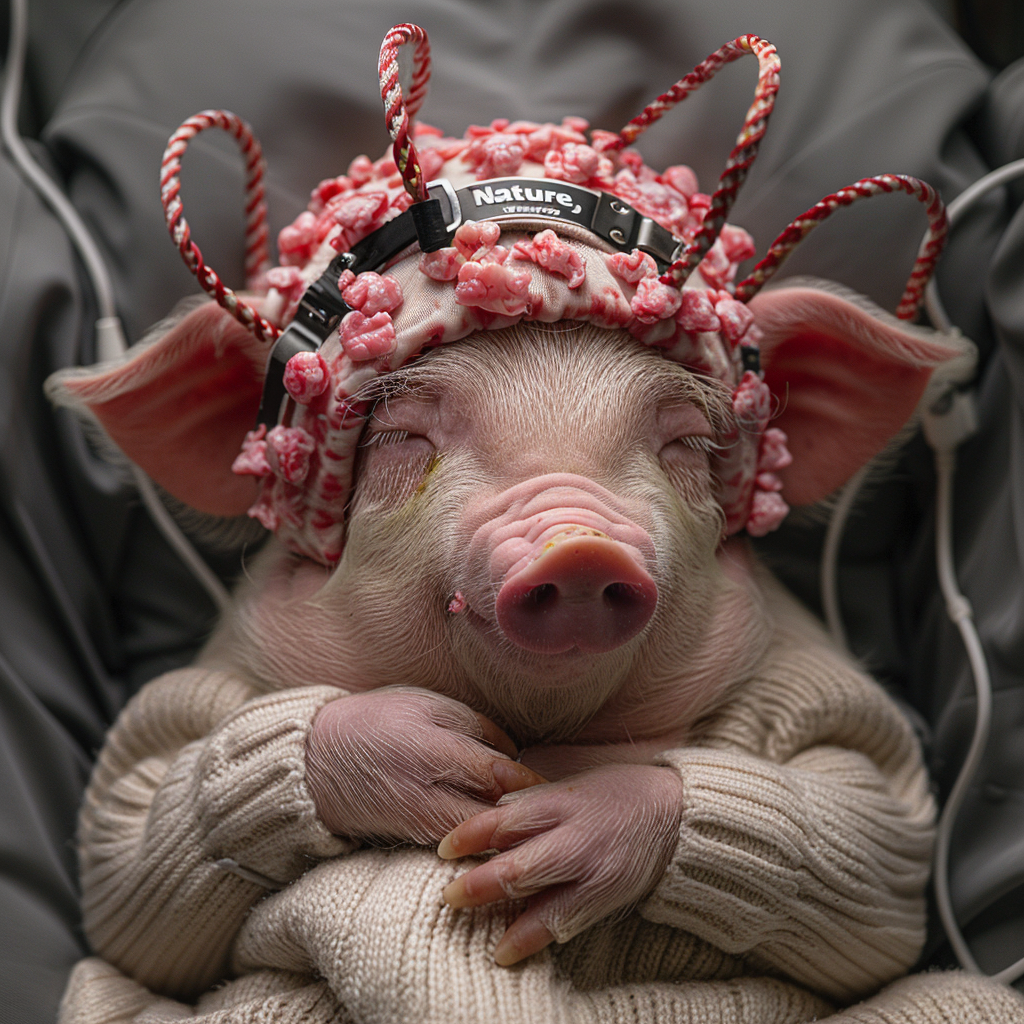2019: Research Showing Pigs’ Brains Partially Brought Back to Life
In a groundbreaking study published on April 17, 2019, scientists at Yale University made a significant breakthrough in the field of neuroscience. Their research, detailed in the esteemed journal “Nature,” showcased how they were able to restore some cellular functions in pigs’ brains several hours after death. This experiment not only challenged existing notions of post-mortem brain functionality but also opened up new possibilities for studying the brain and treating brain diseases.
The experiment involved the use of a specially formulated solution that was circulated through the brains of the deceased pigs. This solution played a crucial role in preserving and restoring certain cellular functions and structural features. The results were nothing short of remarkable, as the brains exhibited signs of cellular activity that were previously thought to be impossible after death.
Unraveling the Mysteries of Post-Mortem Brain Functionality
For years, it was widely believed that brain activity ceased immediately after death. However, this research challenges that long-held belief and suggests that some level of cellular activity can be restored even hours after the heart has stopped beating.
The implications of this discovery are vast. It opens up new avenues for studying the brain and gaining insights into its intricate workings. Scientists can now explore the possibility of studying brain diseases and disorders in a way that was previously unimaginable. This research could potentially lead to breakthroughs in the treatment of conditions such as Alzheimer’s, Parkinson’s, and other neurodegenerative diseases.
The Uniquely Formulated Solution
The key to the success of this experiment lies in the specially formulated solution used to circulate through the pig’s brains. This solution contained a combination of chemicals and nutrients that helped preserve the cellular integrity and restore some level of functionality. By carefully controlling the composition and flow of this solution, the researchers were able to achieve remarkable results.
It is important to note that while this research shows promising results, it is still in its early stages. Further studies and experiments are needed to fully understand the extent of brain restoration and its potential applications. However, the findings thus far have ignited excitement and optimism within the scientific community.
Broader Implications and Ethical Considerations
While the potential applications of this research are undoubtedly exciting, it also raises important ethical considerations. The restoration of cellular functions in deceased brains brings forth questions about the definition of life and the boundaries of consciousness. As scientists continue to push the boundaries of what is possible, it is crucial to engage in thoughtful discussions and debates about the ethical implications of such advancements.
Furthermore, this research has the potential to revolutionize the field of organ transplantation. The ability to restore cellular functions in deceased organs could significantly increase the pool of viable organs for transplantation, potentially saving countless lives.
Conclusion
The research conducted by scientists at Yale University in 2019, showcasing the partial restoration of cellular functions in pigs’ brains after death, is a groundbreaking achievement. This study challenges our understanding of post-mortem brain functionality and opens up new possibilities for studying the brain and treating brain diseases. While there are still many unanswered questions and ethical considerations to address, this research represents a significant step forward in our quest to unravel the mysteries of the human brain.
For more information on this groundbreaking research, you can refer to the original article published in the journal “Nature” here.

